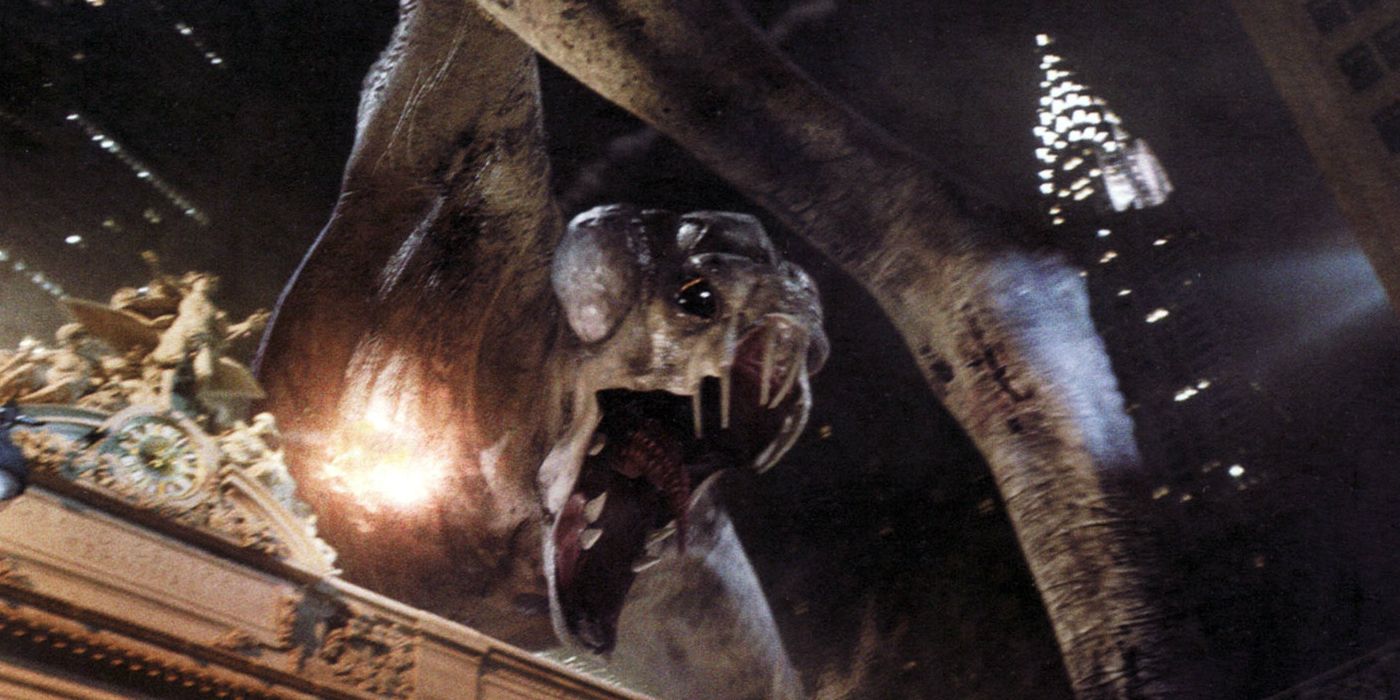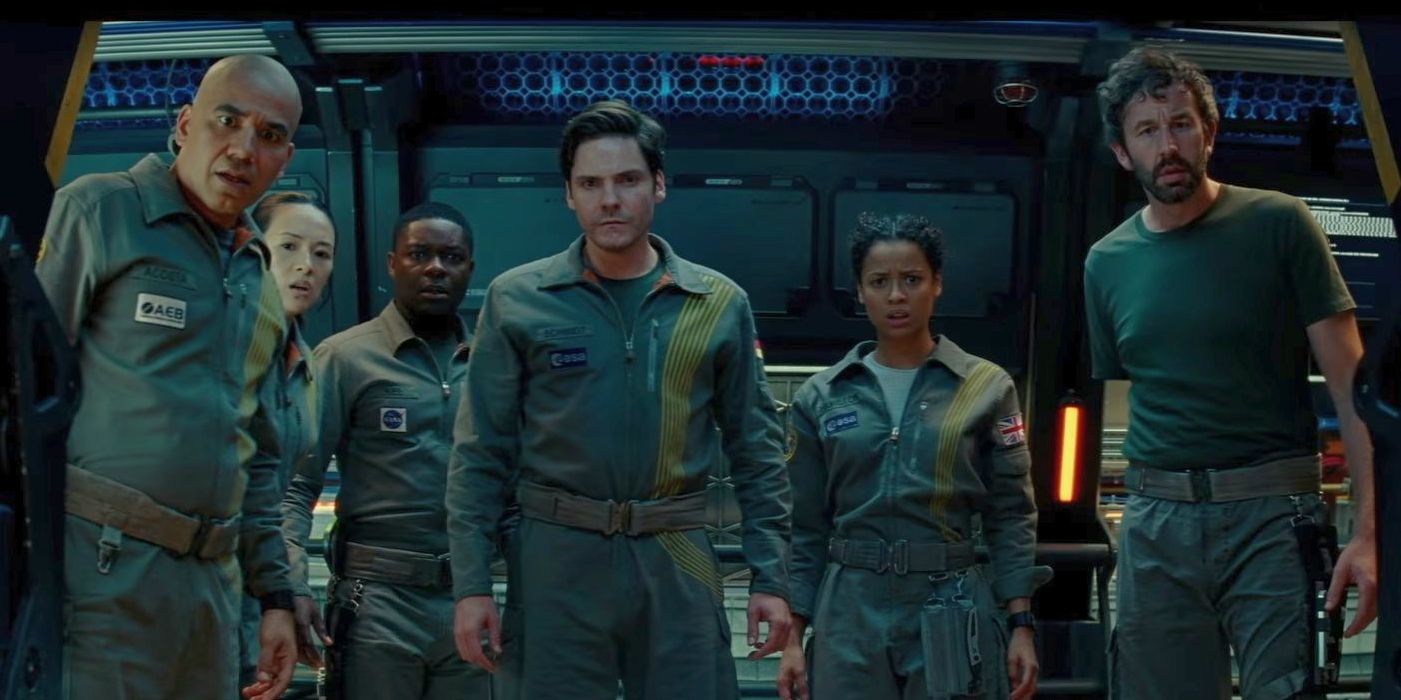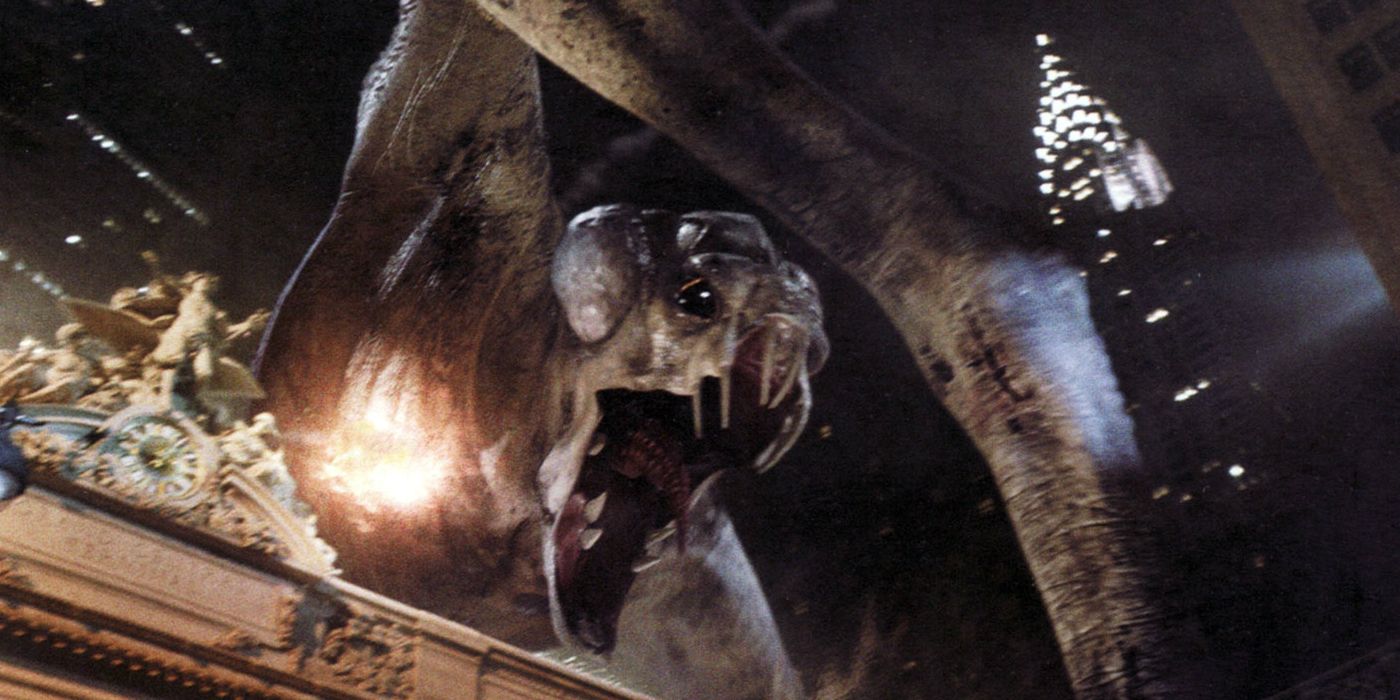SPOILER WARNING: Major spoilers ahead for Netflix's The Cloverfield Paradox
Much of the success of 2008's Cloverfield came down to how mysterious it was, from the movie's viral marketing to the plot itself, which even over the course of the film managed to feel super-secretive. From the moment the trailer debuted and audiences saw the head of the Statue of Liberty being tossed through the streets, we clamored t learn more. But even as most details were kept under wraps, it quickly became clear that director Matt Reeves and producer J.J. Abrams were giving us an American take on Godzilla.
RELATED: Cloverfield Paradox Trailer Revealed, Debuts Tonight on Netflix
Instead of Tokyo, this monster ravaged New York City, but the creature's origins remained very ambiguous throughout. As the film progressed, some clues were dropped hinting that it was alien in nature, but even as the credits rolled, no one knew for sure if this behemoth was a government experiment, something spawned from nuclear fallout or a creature from the supernatural realm. The Cloverfield Paradox, though, does a concise job in clearing up exactly what this monster is, where it's from, and exactly how it ended up laying waste to mankind.
In Paradox, the franchise's third film, we learn that the creature is an alien that arrives on our planet from an alternate dimension. This is all thanks to rifts created in the fabric of space-time due to particle accelerator experiments being conducted aboard the Cloverfield Space Station. The team takes to space to carry out experiments, deemed too dangerous to be done on Earth, in order to create a renewable source of energy for the dying planet. But in doing so, they open the doorway for something much more catastrophic: an alien invasion.
RELATED: REPORT: Cloverfield 4 Heads to WWII, Might Already Be Done Filming
What makes this revelation stand out is how ironic it is. Early on in the movie, conspiracy theorist Mark Stambler (played by Donal Logue) remonstrates about the repercussions of this experiment and the chaos that's possible if things don't go according to plan. He mentions that portals could be opened allowing monsters to arrive on Earth while plugging his books, thus giving the impression he may be a phony.
Lo and behold, Stambler's claims are eventually confirmed later by the man in charge of the Shepard, Schmidt (Daniel Brühl), who admits that because of these "particles interacting with each other across dimensions," a paradox effect occurs. That's to say, thanks to the energy released due to the experiment's success, the space station and its crew have indeed crossed over into another dimension, leading to "two distinct realities in a multiverse fighting to occupy the same space." This, in turn, leads to unnatural occurrences that cannot be explained by conventional science.
It's at this point, which Schmidt dubs "quantum entanglement," that several things go awry. When Schmidt's space station leaves its home dimension, it kills off the Cloverfield and its crew (one that was also on a similar mission to find energy and stop world war back home) from the alternate dimension. In doing so, it creates the breaches that allow monsters to slip onto the prime Earth, causing the damage we saw in Reeves' film.
Essentially, the Cloverfield universe was more or less created thanks to inadvertent inter-dimensional tampering. The 2016 sequel, 10 Cloverfield Lane, saw Michelle (Mary Elizabeth Winstead) escape being kept captive in a bunker by Howard (John Goodman), and when that movie ended, we saw signs of aliens and space ships that hinted extraterrestrial forces were indeed invading Earth. Now, we know for sure what opened the door for all of this to happen. While trying to find something to save the Earth, these scientists unwittingly let loose things that want to destroy mankind, thus summing up the paradox created by the Cloverfield Space Station.
Now streaming on Netflix, directed by Julius Onah, written by Oren Uziel and Doug Jung, and produced by J. J. Abram, The Cloverfield Paradox stars Daniel Brühl, Elizabeth Debicki, Aksel Hennie, Gugu Mbatha-Raw, Chris O’Dowd, John Ortiz, David Oyelowo, and Zhang Ziyi.



